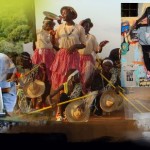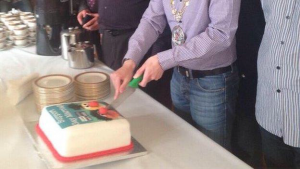Educating Human Rights in Post-conflict Settings
 Sean Molloy is a Principal’s Scholar in Law at the University of Edinburgh, where he is completing his PhD. In this blog, Sean reflects on discussions about Peacebuilding and Education in South Sudan held during the Inclusive Political Settlements Summer School. He goes on to discuss the relationship between human rights and education in post-conflict settings from a critical perspective.
Sean Molloy is a Principal’s Scholar in Law at the University of Edinburgh, where he is completing his PhD. In this blog, Sean reflects on discussions about Peacebuilding and Education in South Sudan held during the Inclusive Political Settlements Summer School. He goes on to discuss the relationship between human rights and education in post-conflict settings from a critical perspective.
I had the pleasure of attending the Inclusive Political Settlements Summer School at the University of Edinburgh last June. While there in the capacity as a rapporteur for the third day, I found myself becoming increasingly engrossed in the discussions and presentations in what proved to be a highly informative and constructive day. While each individual presentation warranted further discussion, one presentation in particular invoked a series of questions pertaining to the place of education in societies attempting to emerge from the shackles of violent conflict.


 In December 2014 DUP MLA Paul Girvan introduced a Freedom of Conscience Bill aimed at allowing businesses to refuse services to a customer if they feel it is against their religious convictions. The Bill arose following the announcement of the Northern Ireland Equality Commission that they would be issuing legal proceedings against Ashers Baking Company for their refusal to accept an order for a cake with a pro-gay marriage slogan.
In December 2014 DUP MLA Paul Girvan introduced a Freedom of Conscience Bill aimed at allowing businesses to refuse services to a customer if they feel it is against their religious convictions. The Bill arose following the announcement of the Northern Ireland Equality Commission that they would be issuing legal proceedings against Ashers Baking Company for their refusal to accept an order for a cake with a pro-gay marriage slogan.

